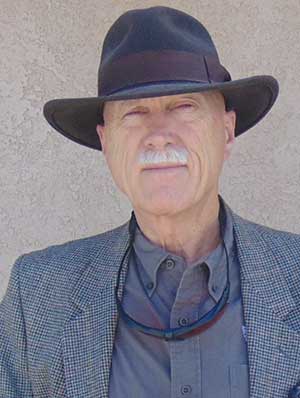
Arizona -(Ammoland.com)- Missouri is one of nine states where the government generally prohibits people from carrying firearms in church. As in any question, the government may be neutral, which is the default position in the United States, or it may actively interfere.
According to concealedcarry.com, there are two states that ban concealed carry in churches, Nebraska and Louisiana. Nebraska allows a church to authorize an armed security team if the team members have carry permits and if written notice is given to church members. Louisiana law is similar, but requires an extra eight hours of training every year. Seven states and D.C. require the permission of a church leader to conceal carry firearms in church. 41 states treat carry in churches the same as any other private property. In Missouri, HB 1936 would remove the current state requirement.
Wyoming recently reformed its law to remove state government from the question.
In the early colonies, people were sometimes required to be armed at church. In “Origins and Development of the Second Amendment“, I found a reference to colonial requirements to carry guns in church from the Virginia laws of arms bearing.
All men that are fitting to bear arms, shall bring their pieces to the church…
The law dated to 1631. David Hardy found it in the 1823 work by William Henning, “The Statutes at large, being a collection of all the laws of Virginia, Vol. 1 at 127, 173-174.”
Requiring people to be armed at church, or requiring them to obtain permission from religious leaders, appears to violate the First Amendment’s protection of free exercise of religion, as well as the Second Amendment’s protection of the right to keep and bear arms.
In Missouri, some religious leaders want the government to enforce their prohibitions for them. From dailytribune.com:
“Pastors, rabbis and religious leaders should not be compelled by the government to place signage in our sacred places prohibiting activity we may not want to allow on our own private property,” said Carlson, whose archdiocese includes nearly 500,000 Roman Catholics.
During a question-and-answer session a few minutes later, Carlson — whose fellow Missouri Catholic bishops issued a joint statement condemning the bill and gun violence in general last week — warned of a potential legal battle: “We (Catholics) would not be above lawsuits or other actions to prevent the law from going into effect.”
Jered Taylor, a Republican Missouri House member from Nixa who is sponsoring the bill, said he “completely disagrees” with the archbishop’s assessment.
“The last thing I want to do is infringe on individuals’ rights,” he said in an interview, noting there are churches that support his proposal. “If they don’t want (concealed guns on their property), all they have to do is post a sign just like any private property. Allowing the church to decide will not infringe on their religious liberty rights.”
The desire to keep arms out of churches is not universal. Many churches actively encourage attendees to be armed.
The state does not have a blanket prohibition against speaking out against government policies in sermons. The state does not require people to obtain permission from religious leaders before speaking on church property.
Taking no action is neutral. Requiring an action is not neutral. It is taking sides.
Refusing to make church policy for the churches that wish to ban the exercise of Second Amendment rights on their property is not infringing on Churches’ free exercise of religion. It is restoring it.
About Dean Weingarten
Dean Weingarten has been a peace officer, a military officer, was on the University of Wisconsin Pistol Team for four years, and was first certified to teach firearms safety in 1973. He taught the Arizona concealed carry course for fifteen years until the goal of constitutional carry was attained. He has degrees in meteorology and mining engineering, and recently retired from the Department of Defense after a 30 year career in Army Research, Development, Testing, and Evaluation.
